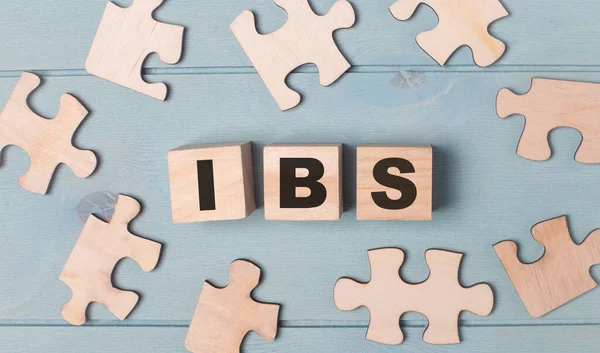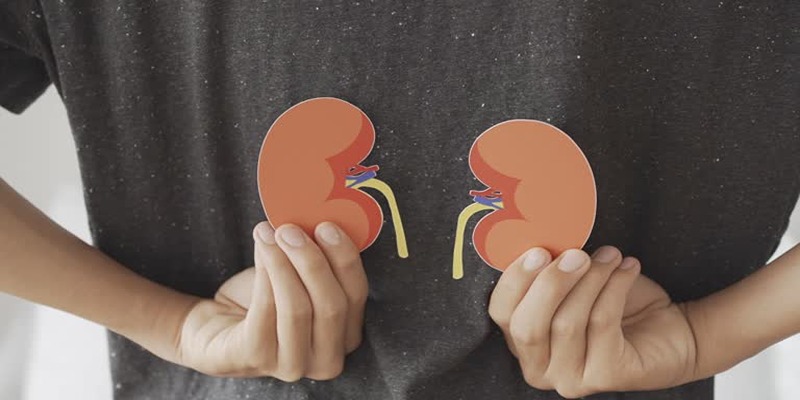how can you improve gut health and ease IBS symptoms
Imagine waking up each day not sure about how your digestive system will behave. For millions of people worldwide, this is the reality of living with Irritable Bowel Syndrome (IBS). It is a chronic condition that can disrupt daily routines and affect emotional health. But there is hope beyond medication and traditional treatments. Suppose you follow a routine that combines dietary changes, stress-reducing mind-body therapies, regular exercise, and probiotics. In this article, we'll explore these strategies through which you can manage IBS symptoms.
What is IBS?
Irritable Bowel Syndrome (IBS) is a common, chronic condition in humans. It affects the digestive system without any obvious signs. Many factors help in developing this syndrome. The main factors are visceral hypersensitivity, stress, and food insensitivities. Moreover, infections like small intestinal bacterial overgrowth (SIBO) also help get this syndrome.
Irritable bowel syndrome (IBS) affects life as it causes discomfort during daily activities. You might not feel like attending the office or school, which reduces productivity. Also, you might not feel like interacting socially because of unpredictable bowel habits. It also affects your emotional health, and you feel frustrated all day.
Common symptoms of IBS
- Abdominal Pain
- Bloating
- Changes in Bowel Movements
- Gas

Different ways to manage IBS
Dietary modifications for IBS
You can manage Irritable Bowel Syndrome (IBS) by changing your diet a little bit. Because everyone’s digestive system reacts differently to foods, so it’s important to know which food does not suit you. For example, foods like gluten-containing grains (wheat, barley), caffeine, alcohol, and fatty or spicy foods. Here are some changes in the diet that can help improve your IBS.
Try Low-FODMAP diet
FODMAPs are types of carbohydrates that some people have difficulty digesting. They include fructose, lactose, fructans, galactans, and polyols. In a low-FODMAP diet, you should not eat foods high in carbohydrates for several weeks. During this time, observe for the symptoms if they get better. The foods high in carbohydrates are fruits, vegetables, dairy products, and wheat bread.
Increase fiber intake in IBS.
IBS also gets better with foods that have soluble fibers. These soluble fibers are high in beans and fruits and help relieve constipation. But be careful because too much fiber can quickly cause gas and bloating. It is advisable to take about 2–3 grams per day. Some of the benefits are explained below:
- Better Bowel Movements: Fiber makes stool soft and easy to pass. This helps with constipation. It also helps control diarrhea by making stool firmer.
- Less Stomach Pain and Bloating: Some fibers, like psyllium, can reduce IBS symptoms such as stomach pain and bloating. Soluble fiber absorbs water and makes stool smooth.
- Supports Gut Health: Fiber feeds probiotic bacteria in the gut. This helps keep the digestive system healthy.
- Other Health Benefits: Fiber can also lower cholesterol and help with weight control.
Mind-body therapies for IBS
Mind-body therapies are very effective in managing Irritable Bowel Syndrome (IBS) symptoms. It reduces stress, which is a triggering factor for IBS. There is a cycle between stress and IBS; stress triggers symptoms, which then increase anxiety and stress levels.
Several mind-body techniques can help reduce stress. You can do yoga with deep breathing exercises, which help release stress and relax you. Also, try meditation, which calms your mind and body. Gut-directed hypnotherapy (GDH) is specifically designed for managing gastrointestinal disorders like IBS. It involves using hypnosis to influence gut function positively by reducing sensitivity, improving bowel habits, and increasing overall health. It also breaks the cycle of chronic discomfort.
Regular exercise for IBS
Regular exercise can help reduce Irritable Bowel Syndrome (IBS) symptoms. When you exercise, your body releases feel-good hormones that improve mood and help digestion. Activities like walking, swimming, and cycling also support gut health. Some exercises are especially helpful for people with IBS. Walking is a gentle activity that most people can do. Swimming and cycling are great options because they do not pressure the joints. Tai Chi and hiking also help by reducing stress and improving overall well-being.
It is important to choose exercises that feel comfortable and enjoyable. Staying active regularly can lead to better digestion, less bloating, and improved gut health. Before starting a new exercise routine, it’s best to check with a doctor.
Probiotics and supplements for IBS
Probiotics are good bacteria that help keep the gut healthy. They are found in foods like yogurt, kefir, sauerkraut, and kimchi. You can also take them as supplements. Probiotics help balance gut bacteria, improve digestion, and support the immune system. For people with Irritable Bowel Syndrome (IBS), probiotics can reduce symptoms like bloating, stomach pain, diarrhea, and constipation. Certain strains, like Lactobacillus and Bifidobacterium, are beneficial.
Other supplements may also help with IBS. Peppermint oil capsules can relax the intestines and reduce cramps; psyllium fiber supplements help regulate bowel movements. However, it is important to talk to a doctor before taking any new supplements.

Alternative therapies for IBS
There are many other therapies in which IBS can be better. Acupuncture is a traditional Chinese therapy that involves inserting thin needles into specific points of the body. It is believed to restore balance in the body's energy, or "qi," and may help with Irritable Bowel Syndrome (IBS). It may also improve the connection between the brain and the gut. However, research results are mixed, and more studies are needed to confirm its effectiveness.
Consult a doctor
If your condition is more severe, then you should see your doctor. A doctor can help confirm the diagnosis and make sure another condition does not cause your symptoms. They also create a treatment plan that fits your specific needs. A personalized treatment plan starts with a detailed check-up. The doctor will listen to your concerns, educate you about IBS, and offer support. Regular follow-ups help track progress and make necessary changes.
Final words
Irritable bowel syndrome (IBS) can be managed by taking care of some things. You need to Eat a low-FODMAP diet and increase fiber, which can help reduce symptoms of IBS. Mind-body practices like yoga, meditation, and hypnotherapy can ease stress and improve digestion. Regular exercise also supports gut health and overall well-being. It is important to consult a doctor for a personalized treatment plan.












